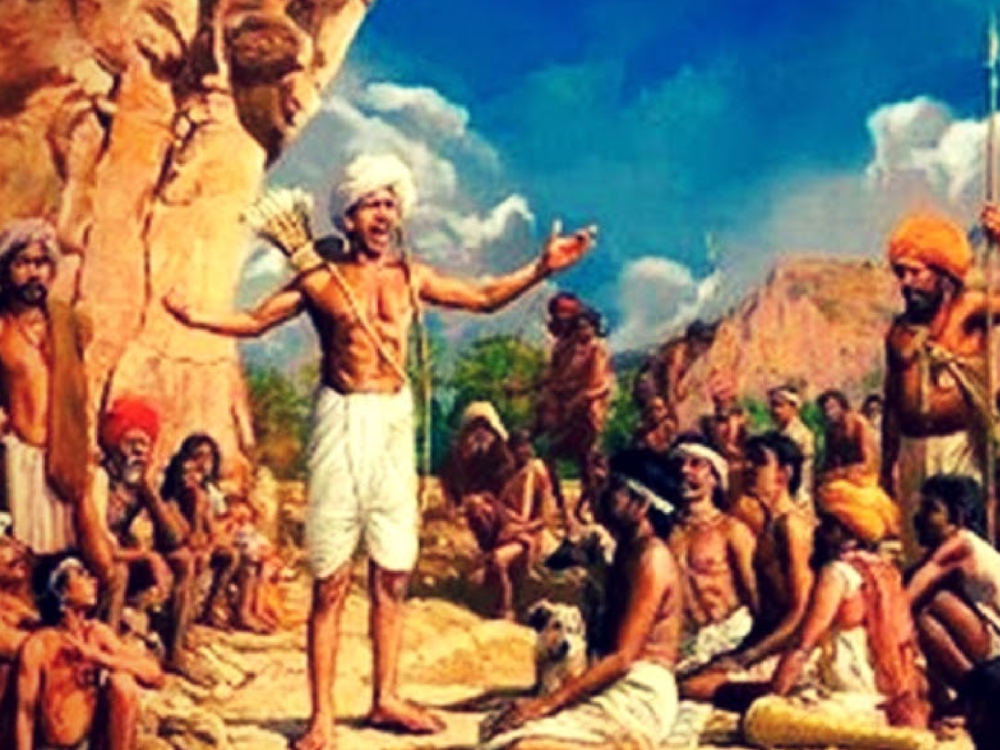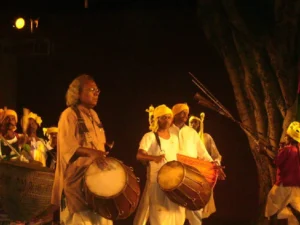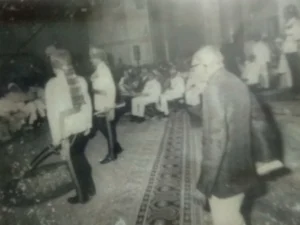Bhagwan Birsa Munda, revered as a divine figure and a formidable leader, is one of the most iconic and inspiring figures in Indian history. His name is synonymous with the fight for tribal rights and independence, and his legacy as a revolutionary leader continues to resonate with millions, particularly among the tribal communities of Jharkhand, Odisha, Bihar, and West Bengal. Birsa Munda’s life was a remarkable blend of spiritual enlightenment and fierce activism, making him a symbol of resistance against oppression and a beacon of hope for indigenous people across India.
Early Life and Spiritual Awakening
Birsa Munda was born on November 15, 1875, in the village of Ulihatu, in what is now Jharkhand. He belonged to the Munda tribe, a community that had long suffered under the exploitative policies of the British colonial rulers and the oppressive practices of local landlords. From a young age, Birsa witnessed the injustices faced by his people, including forced labor, heavy taxation, and the erosion of their traditional way of life.
During his early years, Birsa Munda received a rudimentary education from a missionary school, which exposed him to Christian teachings. However, he soon became disillusioned with the missionaries’ efforts to convert the Adivasis and began to develop a deep connection with the traditional Munda religion and customs. This spiritual awakening led Birsa to a profound realization of his divine mission: to liberate his people from the yoke of oppression and restore their lost rights and dignity.
The Ulgulan Movement: A Fight for Freedom
Birsa Munda’s spiritual beliefs became the foundation of the Ulgulan (The Great Tumult), a powerful movement that aimed to overthrow the British authorities and reclaim the ancestral lands of the Adivasis. Birsa’s teachings emphasized the worship of a single god, whom he called “Singbonga,” and the rejection of idolatry and superstitions. He also preached about the importance of unity among the tribal communities and encouraged them to resist the exploitation by the British and the local landlords (Dikus).
By the late 1890s, Birsa Munda had emerged as a charismatic leader and a messianic figure among the Adivasis. He led a series of uprisings against the British and the landlords, mobilizing thousands of followers with the promise of a divine kingdom, where the tribals would be free from all forms of oppression. The Ulgulan movement reached its peak between 1899 and 1900, when Birsa and his followers engaged in several confrontations with the British forces, burning down police stations, attacking government officials, and reclaiming their lands.
Martyrdom and Legacy
Despite the strength of the Ulgulan movement, the British eventually managed to suppress the rebellion. Birsa Munda was captured in February 1900, and on June 9, 1900, he died under mysterious circumstances in the Ranchi Jail. He was only 25 years old at the time of his death, but his legacy as a martyr and a freedom fighter was firmly established.
Birsa Munda’s death marked the end of the Ulgulan movement, but his impact on the tribal consciousness and the broader struggle for India’s independence was profound. He became a symbol of resistance against colonial rule and the exploitation of indigenous people. His name and his teachings continued to inspire future generations of Adivasi leaders and activists who fought for the rights and dignity of their communities.
In recognition of his contributions, Birsa Munda is celebrated as a national hero in India. His birth anniversary, November 15, is observed as “Jharkhand Day” in the state of Jharkhand, and the Indian government has also declared this day as “Janjatiya Gaurav Divas” (Tribal Pride Day) across the country. Numerous institutions, including universities, schools, and hospitals, have been named in his honor, and his life and legacy are a source of pride and inspiration for millions of people.
Conclusion
Bhagwan Birsa Munda’s life was a testament to the power of conviction, spirituality, and leadership in the face of adversity. He embodied the spirit of resistance and the unyielding desire for freedom that has been a hallmark of India’s struggle for independence. At Bharat Munda Samaj, we draw inspiration from Birsa Munda’s legacy as we continue to work towards the empowerment of the Munda community and the preservation of our rich cultural heritage. His vision of a just and equitable society, where the rights of indigenous people are respected and upheld, remains a guiding light for our mission and values.




